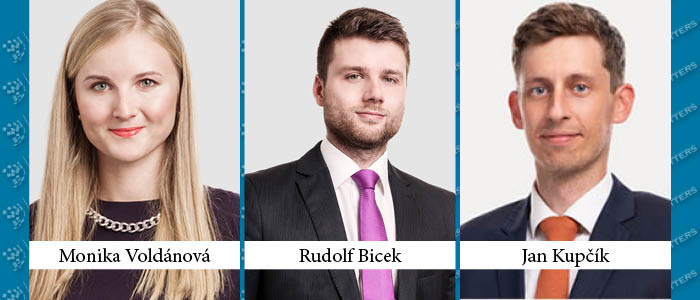In the context of global efforts to migrate towards a green economy, based on renewable energy, the Republic of Moldova aims to improve and complete the regulatory framework applicable to the use of energy from renewable sources.
Moldovan Data Protection Law Follows Footsteps of GDPR
One of the most important recent buzzwords in Moldova, at the intersection of legal services and IT, is GDPR compliance and its associated complications (and opportunities) – to strictly follow both the GDPR (where applicable extraterritorially in Moldova) and the Moldovan legal framework, which is partially aligned with the EU law.
Moldova Builds Interconnections To Provide for Genuine Competition in Its Energy Markets
The spring of 2023 brought a genuine spring mood into the Moldovan energy sector. The overall feeling is that Moldova came out of the winter that, by many predictions, should have frozen it solid and is now eagerly looking forward to bright, although still occasionally frosty, days ahead.
Implementation of the EU Directives on Work-Life Balance and on Transparent and Predictable Working Conditions: Bulgaria
The EU Directives on Work-life balance and on Transparent and predictable working conditions were introduced into the Bulgarian national legislation in August 2022 and brought about significant changes and obligations for the employers. What do they mean for businesses?
Do You Think the Green Deal and Cartel Agreements Have Nothing in Common? Have a Second Guess
The Green Deal for Europe aims to boost the efficient use of resources, helps to keep sustainable environment policy and transforms particular economies of the EU countries by reducing greenhouse gas emissions, by rebuilding immovables in order to reach higher level of energy sustainability, by introducing products with longer sustainability time, by developing products that may be easily recycled, by combating global deforestation, and much more.
Court Fees in Civil Procedures in the Republic of Serbia
Court fees represent an important part of the costs in every legal proceeding. Matters related to court fees in the Republic of Serbia are currently regulated by the Law on Court Fees and the Fee Tariff contained within that law.
Preventing Limitation of Claims in Hungary – Is It Enough to Start Litigation?
The passing of time makes claims unenforceable in front of courts. While in some countries, a simple notice letter interrupts the limitation period, in Hungary creditors who want to avoid the limitation of their claim must initiate a lawsuit. Is it always enough to start litigation to interrupt the limitation of claims in Hungary? The Hungarian Supreme Court addressed this question in a recent case.
Ukraine Eases Currency Control Restrictions, Allowing Repayment of Certain Loans from Foreign Lenders
The National Bank of Ukraine (“NBU”) recently allowed Ukrainian borrowers to transfer foreign currency (“FX”) funds abroad to fulfil their obligations under the following categories of loans from foreign lenders:
Protection of Whistleblowers Is Here!
After a long period of preparations the Whistleblower Protection Act has been finally passed.
Europe ESG Regulatory Update on Greenwashing
Below is a round-up of selected updates on developments in Europe of ESG regulations and policies. Please note that this list is not comprehensive and may not include all such developments that may be relevant to your business.
NBU Further Lifts Martial Law Limitations in Ukraine for New Cross-border Loans
The National Bank of Ukraine (NBU) gradually continues to lift martial law limitations for cross-border borrowings.
Video surveillance at the Workplace – When is it Lawful?
In one of our previous texts we wrote about the recent decision of the Spanish personal data protection authority, by which it fined an employer as the controller of personal data for using the option of audio recording within the employees surveillance system, which data were subsequently used for termination of an employment contract.
Serbia: Chapter 23 – What does it Take to Stay on the Train and reach EU? Part 2
Accountability is one of the key notions both in GDPR and the Serbian Data Protection Act.
Legislative Changes in Slovenia Related to Cross-Border Services and Employment of Foreign Nationals
On 22 March 2023, an amendment to the Transnational Provision of Services Act (Zakon o čezmejnem izvajanju storitev – ZČmIS-1, “Act on Cross-Border Services“) was adopted and partially came into force on 18 April 2023, with individual provisions becoming effective on 1 January 2024.
New Rules on Energy Performance Certificates Will Apply from November 2023
According to the legislation in force in Hungary, when entering into a sale or lease contract of a real property, the buyer or tenant must declare in the contract that he/she has received a document called energy performance certificate (“EPC”) which certifies the energy performance rating of the property and EPC’s unique identification number shall be included in the contract.
Is the German Supply Chain Due Diligence Act Relevant for Czech Businesses?
The German Supply Chain Due Diligence Act (Lieferkettensorgfaltspflichtengesetz; "LkSG") is effective from 1 January 2023 for companies and branches based in Germany with more than 3,000 employees, with further extension to companies with more than 1,000 employees from 1 January 2024.
Do Not Act out of Habit - the New Provisions on Probation Period
Although probation may be one of the most well-known legal institutes of the Labour Code and is a standard element of the employment agreements, the latest amendment of the Labour Code will make the parties pay more attention to their related statements.
Ukraine: The Law on Improving the Operations of the State Property Fund of Ukraine Became Effective
On 22 June 2023, the Law of Ukraine on Amendments to Certain Legislative Acts of Ukraine on Optimizing the Operations of the State Property Fund of Ukraine, Increasing the Effectiveness of State Property Management and Improving the Effectiveness of Sanctions Policy ("Law") became effective.

































